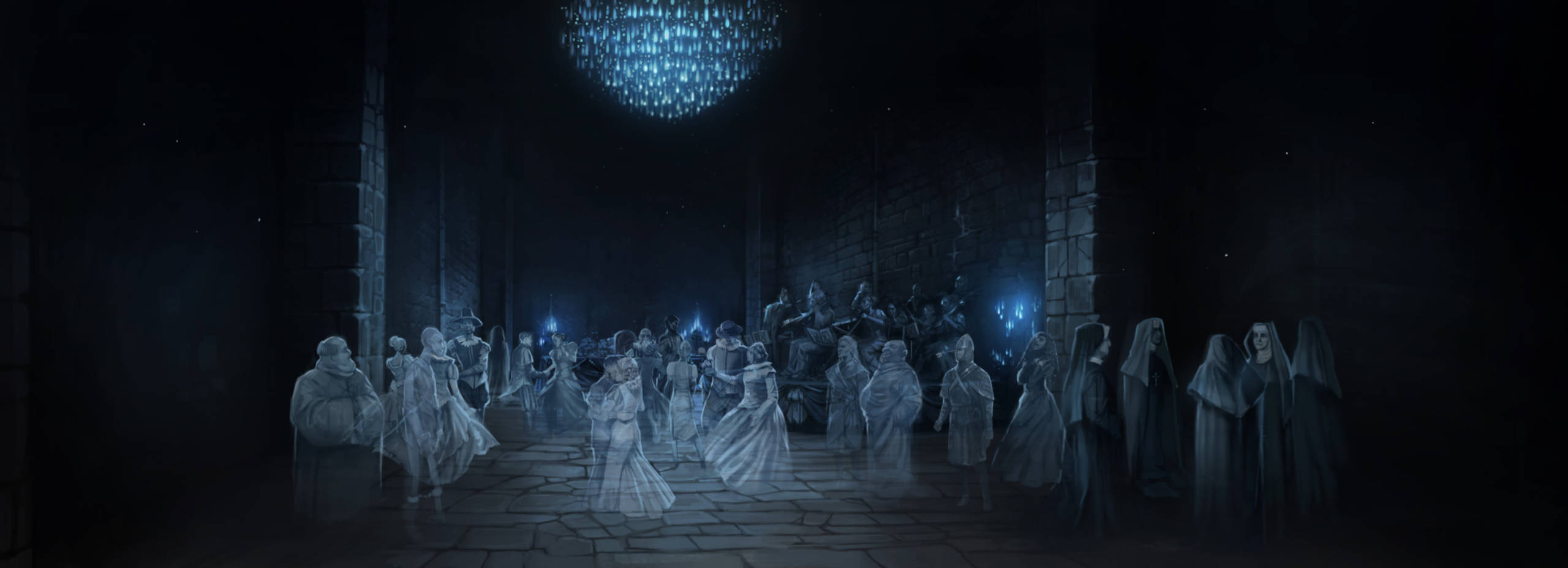Having chosen a feeble simulacrum of mortal life, ghosts are limited in what they can experience. No physical pleasure remains to them, and their knowledge and outlook remains at the level it had attained during life, so that old resentments (for instance, at having an incompletely severed neck) continue to rankle after several centuries. For this reason, ghosts tend to be poor company, on the whole. They are especially disappointing on the one subject that fascinates most people: ghosts cannot return a very sensible answer on what it is like to die, because they have chosen an impoverished version of life instead.
Ghosts can pass through solid objects without causing damage to themselves or the material, but create disturbances in water, fire and air. The temperature drops in the immediate vicinity of a ghost, an effect intensified if many congregate in the same place. Their appearance can also turn flames blue. Should part or all of a ghost pass through a living creature, the latter will experience a freezing sensation as though they have been plunged into ice-cold water.
Witches and wizards are much more susceptible to what Muggles call paranormal activity, and will see (and hear) ghosts plainly where a Muggle might only feel that a haunted place is cold or ‘creepy’. Muggles who insist that they see ghosts in perfect focus are either a) lying or b) wizards showing off – and in flagrant breach of the International Statute of Secrecy.




